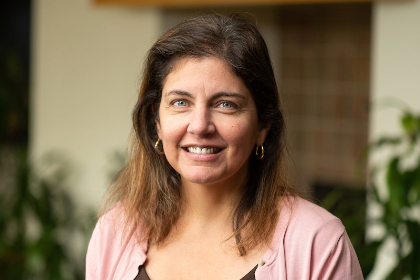(SEPTEMBER 13, 2023) Geneticist Julie Dragon, Ph.D., associate professor of microbiology and molecular genetics, is helping scientists from the U.S. Geological Survey and Vermont Fish and Wildlife try to figure out why many brown bullhead fish in Lake Memphremagog have melanoma, according to Vermont Public.

Geneticist Julie Dragon, Ph.D., associate professor of microbiology and molecular genetics
(SEPTEMBER 13, 2023) Geneticist Julie Dragon, Ph.D., associate professor of microbiology and molecular genetics, is helping scientists from the U.S. Geological Survey (USGS) and Vermont Fish and Wildlife try to figure out why many brown bullhead fish in Lake Memphremagog have melanoma, according to Vermont Public.
This rate of cancer has never been documented in fish anywhere else. The USGS and Vermont Fish and Wildlife are partnering with the University of Vermont to try to find out what’s going on.
Brown bullhead, a whiskered fish that likes to burrow in lake muck, are a good “indicator species” of the lake’s health, particularly of sediment issues, scientists say, and certain genes will indicate what the fish have been exposed to. Diagnose the fish, the theory goes, and you might find the pollutant that is causing the melanomas. And that’s where a geneticist like Dragon comes in: She and her team will start by mapping the brown bullhead genome and then compare the genetics of brown bullhead with cancer with the genetics of healthy fish, looking for places where they’re different.
“We kind of liken it to a jigsaw puzzle, where you know, you’ve got the box as a reference, and you’re matching up pieces that you need,” Dragon says. “You need the picture from the box.” It’s looking for a needle in a haystack, she concedes; it could take a long time, and it could be that more than one gene or more than one trigger is at play. “It will not be easy to answer this question. I would love to say that sequencing is the end-all be-all, but it’s not. I mean, it just gives us more to think about.”
Having the brown bullhead genome will be huge for diagnosing problems in polluted lakes all over the Northeast, Fish and Wildlife biologists believe.
Read full story
at
Vermont Public